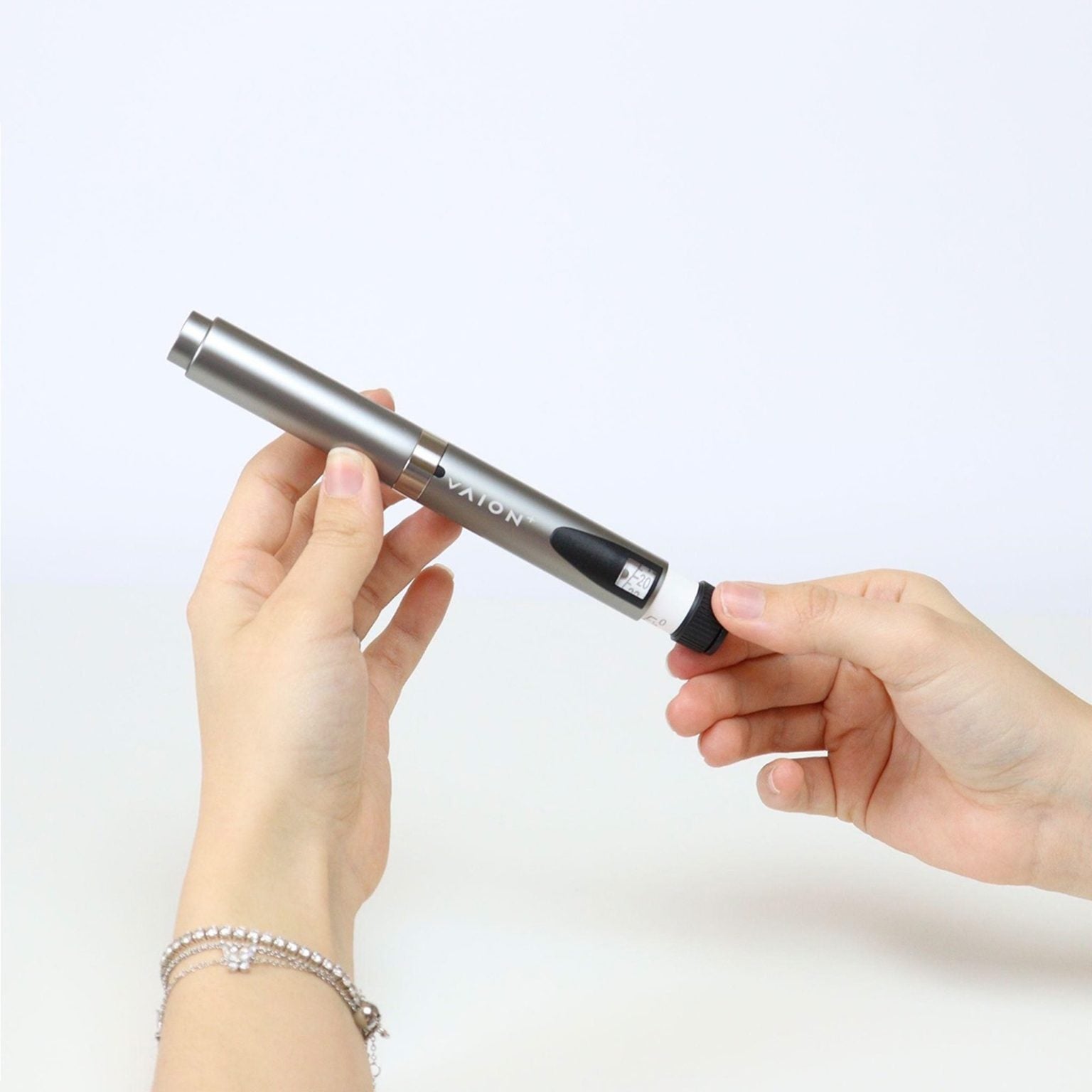As the quest for anti-aging solutions continues, NAD+ (Nicotinamide Adenine Dinucleotide) has emerged as one of the most promising molecules in the field of longevity and age-related health. Research suggests that boosting NAD+ levels may help slow down the aging process, improve cellular health, and enhance overall vitality. But what exactly is NAD+? How does it relate to aging? And can increasing NAD+ truly extend lifespan and improve healthspan?
In this blog post, we’ll explore everything you need to know about NAD+, its role in aging, and the cutting-edge science supporting its potential to promote longevity.
What is NAD+?
Nicotinamide Adenine Dinucleotide (NAD+) is a coenzyme found in all living cells. It plays a crucial role in energy production within the mitochondria, the powerhouses of our cells. NAD+ is involved in key metabolic processes, including:
- Cellular energy metabolism: NAD+ is essential for the conversion of food into usable energy (ATP), which fuels almost every cellular function.
- DNA repair: NAD+ helps activate enzymes that repair DNA damage, which accumulates over time and contributes to aging.
- Gene expression: NAD+ influences genes responsible for inflammation, cell survival, and stress response, which are critical to aging and disease prevention.
- Sirtuin activation: NAD+ activates sirtuins, a group of proteins that regulate vital processes such as inflammation, stress resistance, and metabolism.
How NAD+ Declines with Age
As we age, NAD+ levels naturally decline, starting in our early 30s. This reduction in NAD+ availability can lead to:
- Reduced mitochondrial function: Less NAD+ means less energy production, leading to fatigue, decreased muscle function, and cognitive decline.
- Impaired DNA repair: With lower NAD+ levels, DNA repair mechanisms become less effective, leading to the accumulation of genetic mutations and cellular damage.
- Increased inflammation: NAD+ depletion can trigger inflammatory responses in the body, a key factor in age-related diseases like Alzheimer's, cardiovascular disease, and diabetes.
- Decline in sirtuin activity: Since sirtuins rely on NAD+ to function, lower NAD+ levels may impair their ability to protect cells from stress and regulate metabolism.
The gradual decline of NAD+ in aging is a major factor contributing to the physical and cognitive decline associated with getting older. This has sparked growing interest in finding ways to boost NAD+ levels to mitigate these effects and promote healthier aging.
The Connection Between NAD+ and Longevity
Many studies have suggested that restoring NAD+ levels can help slow aging and improve healthspan—the period of life spent in good health. Here’s a closer look at some of the key ways NAD+ influences longevity:
- Boosting Cellular Energy and Vitality
NAD+ plays an essential role in mitochondrial function. As we age, mitochondrial efficiency declines, leading to reduced energy production. By increasing NAD+ levels, studies have shown that mitochondrial function improves, resulting in better energy levels, enhanced physical performance, and a reduced risk of age-related diseases like sarcopenia (muscle loss) and frailty.
- Enhancing DNA Repair
DNA damage accumulates over time due to environmental factors, stress, and natural cellular processes. NAD+ is critical for activating enzymes like PARPs (Poly (ADP-ribose) polymerases), which are involved in DNA repair. Higher NAD+ levels may enhance the body’s ability to repair DNA damage, potentially preventing age-related conditions like cancer, neurodegenerative diseases, and cardiovascular issues.
- Regulating Inflammation
Chronic inflammation is often described as the "silent killer" of aging. Elevated inflammation levels contribute to the development of many age-related diseases. NAD+ activates sirtuins, which regulate inflammatory responses and help maintain cellular homeostasis. By maintaining healthy levels of NAD+, it may be possible to reduce systemic inflammation and reduce the risk of inflammatory diseases.
- Sirtuins and Longevity
Sirtuins are a group of proteins that play a key role in promoting longevity by regulating important processes like inflammation, stress resistance, and cellular repair. NAD+ is necessary for the activation of sirtuins, which have been shown to extend lifespan in a variety of organisms. In humans, sirtuins help maintain metabolic health, protect against neurodegeneration, and improve cardiovascular health.
- Improving Cognitive Function
NAD+ is also crucial for brain health. Research has shown that increasing NAD+ levels can enhance neuroplasticity, improve cognitive function, and protect against neurodegenerative diseases like Alzheimer's. The relationship between NAD+ and brain health suggests that NAD+ supplementation could be a potential therapeutic approach for age-related cognitive decline.
How to Boost NAD+ Levels for Longevity
Given the powerful effects NAD+ has on aging and overall health, many people are exploring ways to increase their NAD+ levels. Here are some of the most popular methods:
- NAD+ Precursors
One of the most common ways to increase NAD+ is by taking supplements that provide precursors to NAD+ production. The two most popular NAD+ precursors are:
- Nicotinamide Riboside (NR): A naturally occurring compound found in small amounts in foods like milk. NR is converted into NAD+ in the body, and studies have shown it can boost NAD+ levels and improve age-related conditions.
- Nicotinamide Mononucleotide (NMN): Another precursor to NAD+, NMN has gained attention for its ability to increase NAD+ levels and enhance metabolism, cardiovascular health, and longevity in animal models.
- Exercise
Regular physical activity is one of the most effective ways to naturally increase NAD+ levels. Exercise has been shown to stimulate the production of NAD+ and activate sirtuins, helping to promote mitochondrial function and reduce inflammation.
- Caloric Restriction and Intermittent Fasting
Caloric restriction (reducing caloric intake without malnutrition) and intermittent fasting (cycling between periods of eating and fasting) have been shown to increase NAD+ levels. Both methods trigger cellular stress responses that activate sirtuins and increase NAD+ production, leading to improved metabolic health and longevity.
- Avoiding Excessive Alcohol and Toxins
Excessive alcohol consumption and exposure to environmental toxins can deplete NAD+ levels and accelerate aging. By reducing or eliminating these stressors, you can help preserve your body’s NAD+ stores and slow down the aging process.
The Future of NAD+ and Longevity Research
While the science around NAD+ and longevity is still evolving, the potential benefits of NAD+ supplementation and lifestyle interventions that boost NAD+ levels are exciting. Researchers continue to explore how NAD+ affects aging, age-related diseases, and overall healthspan. As more clinical trials and studies are conducted, we may soon have a clearer understanding of how to optimize NAD+ levels for better health and longer life.
Conclusion
NAD+ is a key molecule involved in energy production, DNA repair, inflammation regulation, and longevity. As we age, our NAD+ levels naturally decline, which can contribute to cellular dysfunction and age-related diseases. By boosting NAD+ levels through supplements, exercise, caloric restriction, and other strategies, we may be able to slow the aging process and enhance overall health.
If you're interested in exploring NAD+ for longevity, it’s always a good idea to consult with a healthcare professional before starting any supplementation regimen, especially since research is still ongoing. But one thing is clear: NAD+ holds immense promise as a cornerstone of healthy aging and longevity.
Start your journey toward better health and longevity today—consider incorporating NAD+-boosting strategies into your routine!



